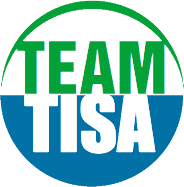What are cross-border data flows?
Cross-border data flows can refer to any number of transactions. The personal data that millions of people share on social networking sites like Twitter and Facebook is used by companies to develop better marketing practices. Cloud computing allows customers and businesses to access digital data from powerful off-site servers. Digital shopping on sites like Amazon is more popular than ever. Physical objects—TVs, home appliances, and cars for example—are being connected to each other more frequently in what’s termed the “Internet-of-Things.” Far from being exclusive to high-tech firms, data flows are used by almost all businesses and customers.
Why are cross-border data flows significant?
Countries are concerned about these free data flows, however, for a variety of reasons: revelations about the ability of governments to collect digital traffic; protectionist goals to favor local companies; and concerns about the security of personal data, to name just a few. In response, barriers are being imposed on the free flow of data across borders by various nations, both developed and developing.
What problems are associated with cross-border data flows?
These barriers to free data flows form considerable obstacles to global trade. Customers would find themselves unable to access valuable digital services. Small and medium-sized enterprises (SMEs), which could greatly benefit from digital trade, would be disproportionately affected by these barriers. They do not have the resources to bear these unnecessary costs, and are far more restricted in their global reach.
How will the TiSA affect cross border data flows?
The relative novelty of these developments means that trade laws have not been properly updated to address them. The ongoing TiSA negotiations allow an opportunity for these barriers to be neutralized and for the world’s major trading nations to agree on an international framework which promotes free data flow.
Some possible solutions which could be added to these trade negotiations include:
- Explicit agreement among participating nations that data can flow freely across border, unless excepted for clearly defined and pre-accepted needs (such as national security). Explicit commitments will reduce uncertainty for businesses and ensure that governments form an adequate justification for any data flow restrictions they impose.
- Agreed upon harmonization of regulations involving the sharing of personal data. Such a rule would make compliance easier for businesses and provide security and essential information for consumers.
Tags: trade, services, TiSA, international, issues, technology
